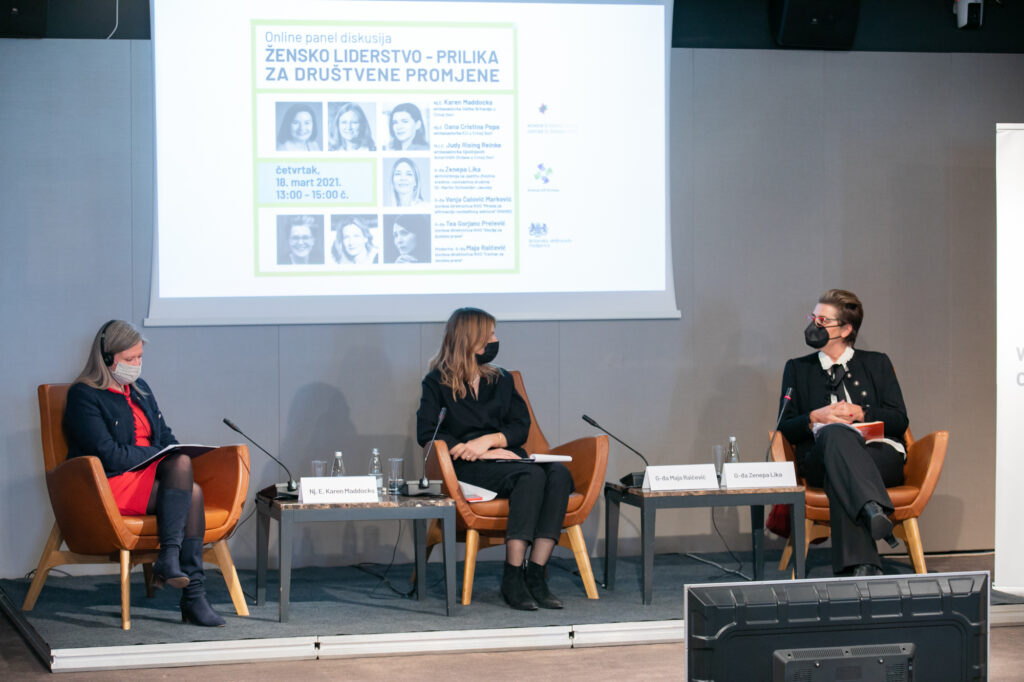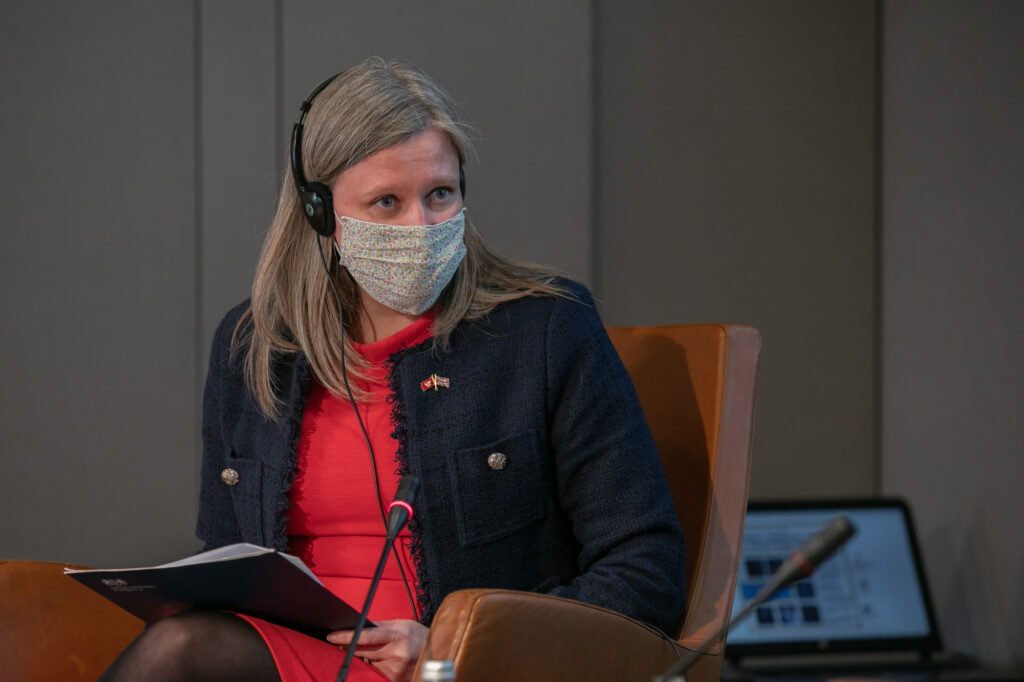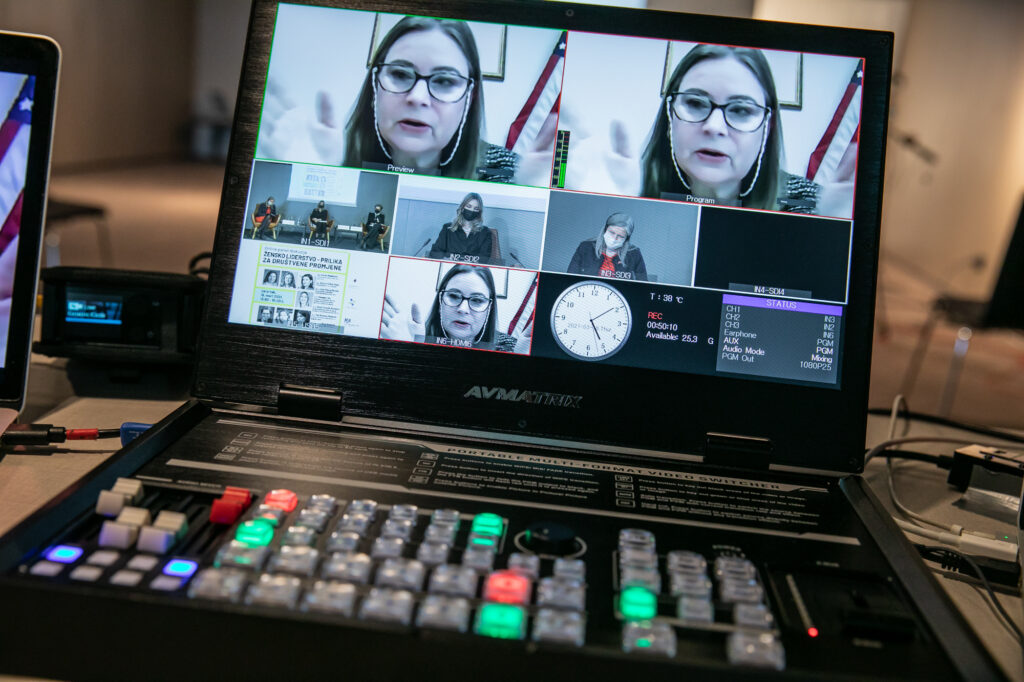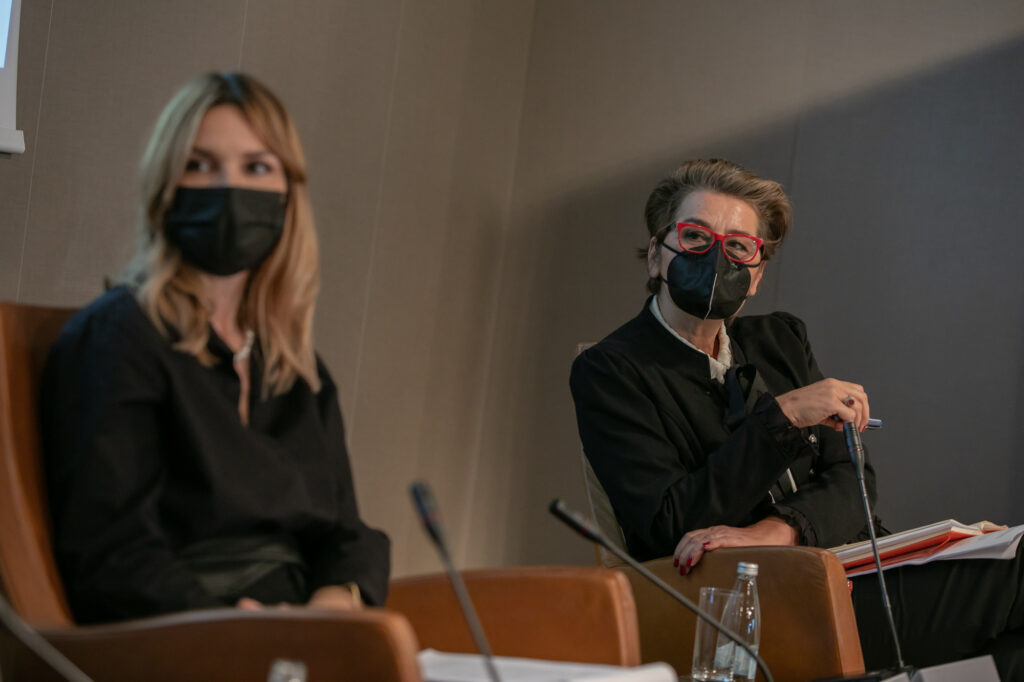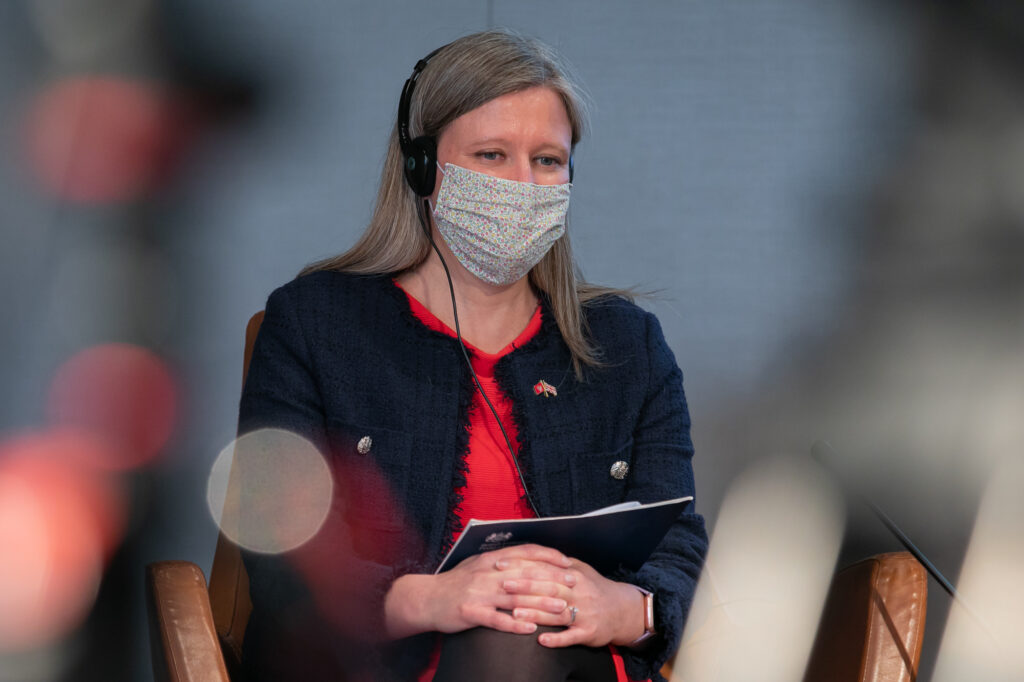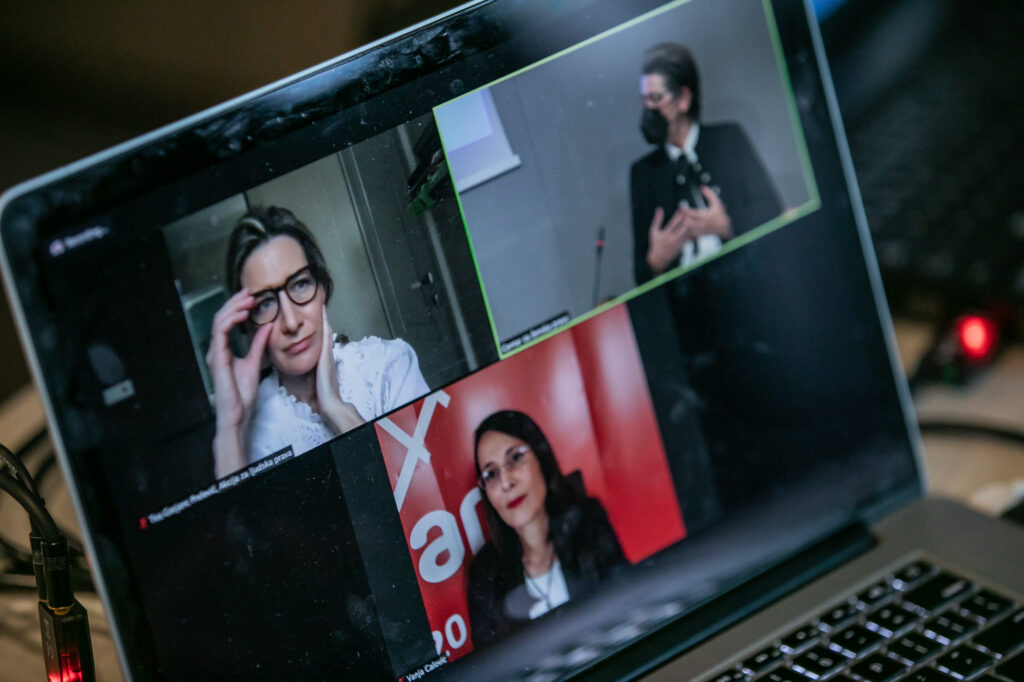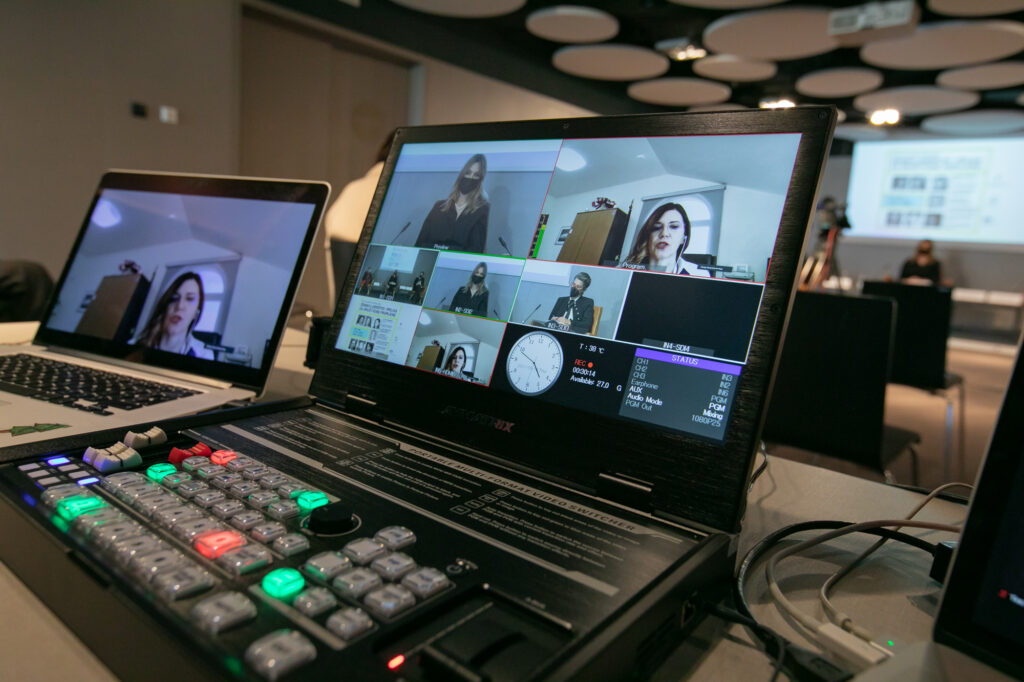2843Views 0Comments
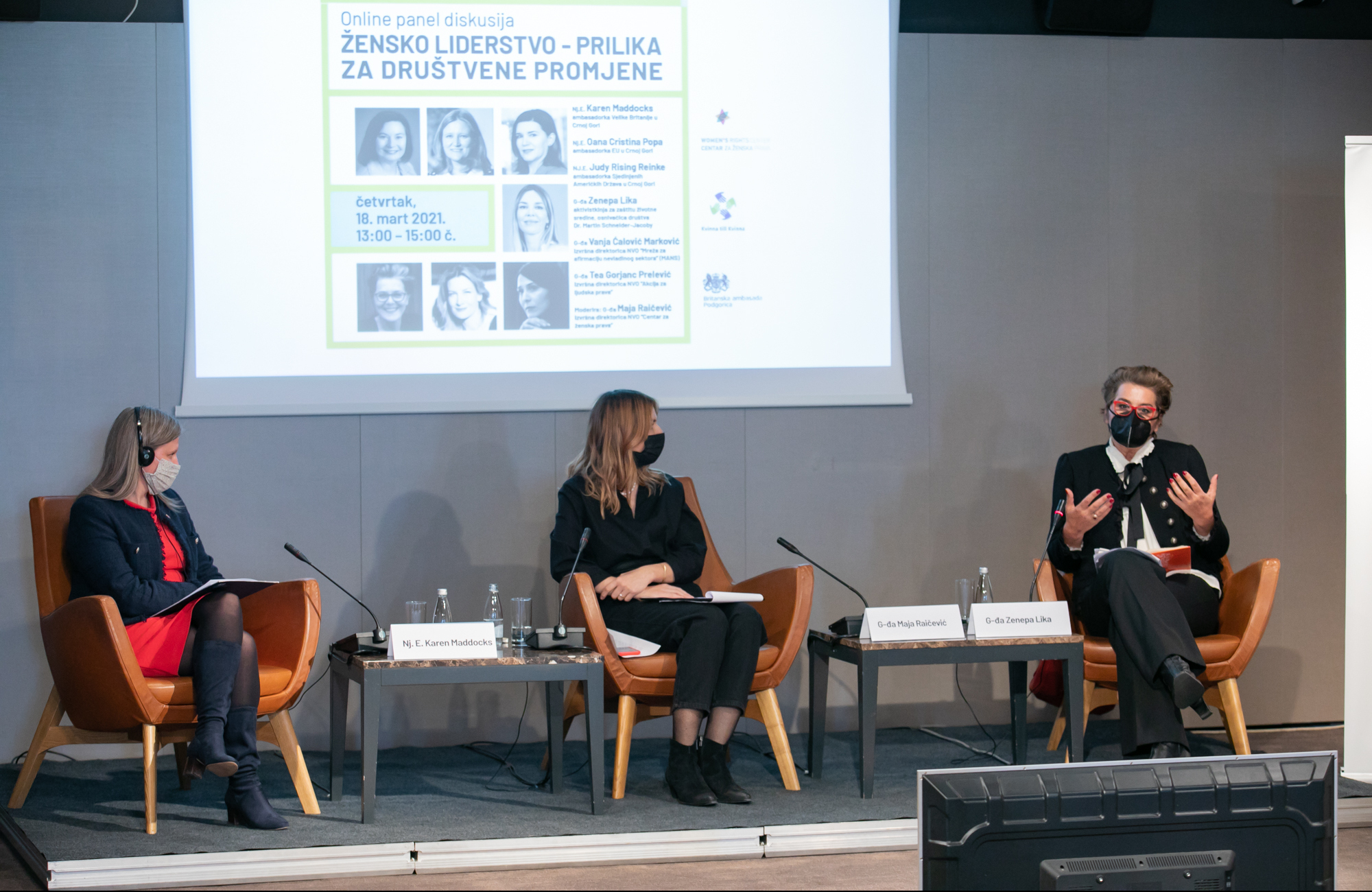
When women lead processes – we see positive results
On Thursday, March 18, Women’s Rights Center, with the support of the British Embassy in Podgorica and the Kvinna till Kvinna Foundation, organized an online panel discussion “Women’s Leadership – an Opportunity for Social Change”.
The guest panelists were:
H.E. Karen Maddocks, British Ambassador to Montenegro;
H.E. Oana Cristina Popa, Ambassador of the European Union to Montenegro;
H.E. Judy Rising Reinke, Ambassador of the United States of America to Montenegro;
Mrs. Zenepa Lika, environmental activist, founder of the society Dr. Martin Schneider-Jacoby;
Ms. Vanja Ćalović Marković, Executive Director of the NGO Network for Affirmation of the Non-Governmental Sector (MANS);
Ms. Tea Gorjanc Prelević, Executive Director of the NGO Action for Human Rights.
The panel discussion was moderated by Maja Raičević, WRC Executive Director. in the introductory part, she stated that many women realized their social engagement through civil society, consistently and courageously dealing with topics of greatest social importance such as human rights, corruption and organized crime, reform of the judicial system, environmental protection, protection of the rights of women and marginalized groups, social justice, clarification and prosecution of war crimes, peace building and civil society:
‘When women lead the processes, we see positive results. Therefore, I believe it is time to think about reshaping the gender issue – to focus our attention and social debate on women’s leadership as an opportunity to create a better society for all, in addition to awareness of the unequal position of women in society. There are numerous examples that point to its potential, and some are right here today, among us.’
The panelists shared their experiences on the challenges they faced on their professional paths, as well as observations on the state of gender equality in Montenegro. The guests about prejudices they were faced with in terms of competence, requiring the courage to pursue the profession they have chosen as women:
‘The greatest challenge for achieving gender equality in Montenegro and the United Kingdom is breaking gender norms – for men and women. When women reach leadership positions, it is extremely important to provide them with an adequate platform and increase their visibility, as inspiring role models for future generations.’
– stated the British ambassador Karen Maddocks.
Tea Gorjanc Prelević spoke about role models and motivation for engaging in civil activism:
‘I have always been inspired by people all over the world, who were selfless and who wanted to do something for others. I think that the space that we all share together in public, especially in the civil sector, is actually an expression of that aspiration to do something more, which will improve all our lives.’
– emphasised Mrs. Tea Gorjanc Prelević
Zenepa Lika stated that women talk about topics that are not very popular:
‘the ones which we want to be silent about in a generally traditional way. I can say that Montenegrin women inspired me to express my inner activism publicly.
explained Mrs. Zenepa Lika
During the discussion, the guests discussed the need to break stereotypes about gender roles, as well as great social pressure on women in public space as a prerequisite for successfully balancing private and professional life,. In this sense, the importance of creating equal opportunities for women and men was emphasized, which would enable the full enjoyment of the right of every person to realize his or her potential, regardless of gender. Tea Gorjanc Prelević emphasized that in that sense, the statements of public office holders are especially important, who must not perpetuate ingrained stereotypes about the roles of women and men.
The inadequate representation of women in the political life of Montenegro is clearly visible in the example of the last parliamentary elections and post-election political processes. This is a chronic problem to which special attention needs to be paid, through the implementation of concrete measures to strengthen women’s political participation.
-The Ambassador Of The European Union, Oana Cristina Popa pointed out:
‘I will continue to talk to political leaders and seek their stronger support for women, especially in politics’
– the EU Ambassador Oana Cristina Popa declared.
The participants paid special attention to the increasing number of cases of attacks on women in the public and political life of Montenegro, with the aim of degradation and disqualification on the basis of gender, which were unanimously condemned. The panelists strongly claimed that it is necessary to respond to this phenomenon with public solidarity condemnation, which will send an unequivocal message that such behavior is unacceptable.
Using examples from their own lives, the participants spoke about their role models and personal motivation to persevere in their professional path, the importance of determination and dedicated work, thanks to which they have achieved professional results so far.
‘Although I have never dealt with women’s rights “per se”, I believe that my work has succeeded, in a way, to dispel some prejudices, that some people have realized that we are all human beings who have the right, regardless of gender, to speak what we think. I think it is important that at the same time, while systematically changing the situation of women through laws and public policies, we explain to other women by our example that we can do it, that we can do it, that we can do it, that it is not just men those who are allowed to do such jobs.
– Vanja Ćalović Marković stated.
One of the key messages of the panel participants, especially to the generations of young women, is to dare to want and believe that the results of their work can break stereotypes about gender roles and change things for the better, and be ready to fail as part of their professional times, as a chance to learn something new from that. The importance of women’s solidarity in the fight to promote gender equality, build a better and more equal future was especially highlighted.
In the final part of the panel, the US Ambassador, Judy Rising Reinke, concluded:
‘The press release is: Challenge a woman, she will not break, women will not break, they are resilient, they are very strong. They are much stronger than some of our male colleagues would expect. Give women the opportunity to be at the negotiating tables, to contribute and show their strength.’
the US Ambassador, Judy Rising Reinke, concluded
The recording of the Panel Discussion can be found on:
Facebook
Youtube
Portal Vijesti

